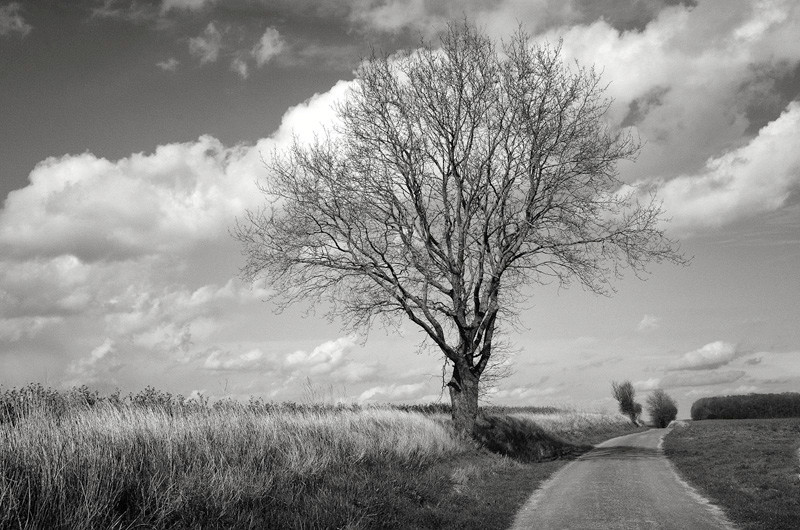
The Lane from Bazentin-le-Petit to High Wood
On 18th July 2nd Royal Welch Fusiliers were ordered to move from their billets in Mametz Wood, from whence Robert Graves had earlier retrieved greatcoats for his men, to the line at Bazentin Le Petit. On the way up they lost several men to gas, and once in their shallow trench they came under a sustained barrage, the shells just bracketing their trench, but none falling in. The following afternoon Robert Graves's platoon was ordered to go out after dark that evening into no-man's-land to build a pair of cruciform strongpoints, one on each side of the Bazentin-High Wood lane.
"It was a bright, moonlit night. My way to the stongpoint on the right took me along the Bazentin-High Wood road. A German Sergeant-Major, wearing a pack and full equipment, was lying on his back in the middle of the road, arms stretched wide. He was a short, powerful man with a full black beard. He looked sinister in the moonlight: I needed a charm to get myself past him. The simplest way, I found, was to cross myself. Evidently a brigade of the 7th Division had captured the road, and the Germans had been shelling it heavily. It was a sunken road, and the defenders had begun to scrape fire positions in the north bank, facing the Germans. The work had evidently been interrupted by a counter-attack. They had done no more than scrape hollows in the lower part of the bank. To a number of these little hollows wounded men had crawled, put their heads and shoulders inside, and died there. It looked as if they had tried to hide from the black beard. They were Gordon Highlanders.
Capt Robert Graves, 2nd Bt RWF
"It was a bright, moonlit night. My way to the stongpoint on the right took me along the Bazentin-High Wood road. A German Sergeant-Major, wearing a pack and full equipment, was lying on his back in the middle of the road, arms stretched wide. He was a short, powerful man with a full black beard. He looked sinister in the moonlight: I needed a charm to get myself past him. The simplest way, I found, was to cross myself. Evidently a brigade of the 7th Division had captured the road, and the Germans had been shelling it heavily. It was a sunken road, and the defenders had begun to scrape fire positions in the north bank, facing the Germans. The work had evidently been interrupted by a counter-attack. They had done no more than scrape hollows in the lower part of the bank. To a number of these little hollows wounded men had crawled, put their heads and shoulders inside, and died there. It looked as if they had tried to hide from the black beard. They were Gordon Highlanders.
Capt Robert Graves, 2nd Bt RWF

|
